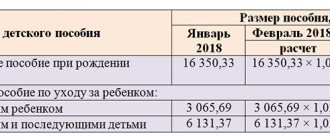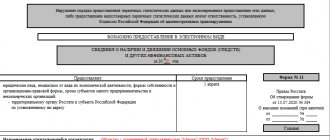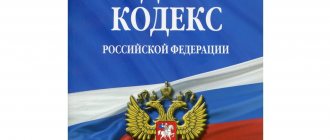What is a business trip under the Labor Code of the Russian Federation and what are its distinctive features
What is considered a business trip under the Labor Code of the Russian Federation? The provisions of the code say that a business trip is a trip by a company employee, which has a certain period and is carried out in accordance with the order of the employer, to an object that is located outside the regular place of work (Article 166 of the Labor Code of the Russian Federation). The Labor Code distinguishes between the concept of a business trip and a business trip - carried out by an employee in a position that involves performing work of a traveling nature.
A business trip is also considered a temporary departure of an employee to a structural unit of an organization located in another locality or abroad.
A business trip, unlike a business trip, requires registration in a special order - established by Decree of the Government of Russia dated October 13, 2008 No. 749. In practice, this means:
- issuance of a travel order by management;
- payment of an advance to the traveler;
- completion of an advance report by an employee returning from a business trip (as well as a job assignment and a business trip report, if this is provided for by the employer’s local regulations).
For posted workers, unlike those who participate in business trips, a wide range of guarantees and compensations has been established. The traveler's salary is calculated according to a special principle - based on average earnings.
You can learn more about the specifics of calculating salaries for employees on business trips in the article “Calculating average earnings for a business trip.”
Recording the working time of employees on a business trip also has its own peculiarities. Let's look at them.
Categories
Almost every organization has to face the need to send its employees on a business trip. This article will help you navigate the most important issues that arise in such cases.
BASIC RULES
A business trip is a trip by an employee by order of the employer for a certain period of time to carry out an official assignment outside the place of permanent work. Business trips of employees whose permanent work is carried out on the road or has a traveling nature are not recognized as business trips.
Guarantees when sending employees on business trips and other business trips are regulated by Ch. 24 Labor Code of the Russian Federation.
When sending an employee on a business trip, the employer needs to know the following.
Certain categories of workers are sent on business trips only with their consent:
· women with children under three years of age1;
· mothers and fathers raising children under the age of five without a spouse2;
· employees with disabled children2;
· workers caring for sick members of their families in accordance with a medical report2;
· fathers raising children under three years of age and disabled children without a mother3;
· guardians (trustees) of the minors named above3.
The following cannot be sent on business trips at all:
· pregnant women4;
· workers under the age of 18 (except for creative media workers, cinematography organizations, television and video crews, theaters, theatrical and concert organizations, circuses, and other persons involved in the creation and (or) performance (exhibition) of works, professional athletes in accordance with the lists of jobs, professions, positions of these workers, approved by the Government of the Russian Federation, taking into account the opinion of the Russian Tripartite Commission for the Regulation of Social and Labor Relations5;
· employees during the period of validity of the apprenticeship contract, if the business trip is not related to the apprenticeship6.
The main regulatory legal act regulating the procedure for processing business trips today is the Regulation on the specifics of sending employees on business trips7 (hereinafter referred to as the Regulations on Business Travel). This Regulation defines the specifics of the procedure for sending employees on business trips both on the territory of the Russian Federation and on the territory of foreign states.
Employees, that is, citizens who have an employment relationship with the employer, are sent on business trips. Consequently, persons providing services under a civil contract, for example, contracts or paid services, cannot be sent on a business trip.
Employees are sent on business trips by order of the employer for a certain period of time to fulfill an official assignment outside their place of permanent work.
The place of permanent work is considered to be an organization (a separate division of the organization), work in which is stipulated by an employment contract. When drawing up an employment contract, it must indicate the place of work, and if the employee is hired at a branch, representative office or other separate structural unit of the organization located in another area, the place of work indicating the separate structural unit and its location8.
A trip by an employee sent on a business trip by order of the employer or a person authorized by him to a separate unit of the sending organization (branch, representative office) located outside the place of permanent work is also recognized as a business trip.
TIME ON A BUSINESS TRIP
Based on the employer’s decision, formalized by order, the employee is issued a travel certificate confirming the period of his stay on a business trip (date of arrival at the point(s) of destination and date of departure from it (from them)), with the exception of cases where the employee is sent on a business trip outside the territory of the Russian Federation. Federation.
According to clause 4 of the Regulations on Business Travel7, the day of departure on a business trip is the date of departure of a train, plane, bus or other vehicle from the place of permanent work of the business traveler, and the day of arrival from a business trip is the date of arrival of the specified vehicle at the place of permanent work. When leaving a vehicle before 24:00 inclusive, the day of departure is considered the current day, and from 00:00 and later - the next day.
If a station, pier, or airport is located outside a populated area, the time required to travel to the station, pier, or airport is taken into account. The day the employee arrives at his place of permanent work is determined similarly.
For example, an employee is sent on a business trip to Krasnodar to participate in a trial in the Arbitration Court of the Krasnodar Territory. The plane takes off at 01:25 on November 23, 2010 from Domodedovo Airport. Check-in for the flight ends 40 minutes before departure. Travel time to Domodedovo Airport is 1 hour 20 minutes. Thus, the employee will go on a business trip on November 22, 2010. Consequently, November 22, 2010 will be considered the start date of the business trip.
The issue of an employee’s attendance at work on the day of departure on a business trip and on the day of arrival from a business trip is resolved by agreement with the employer.
A business trip includes the time the employee is on the road, the time the employee stays at the place of business trip, and the delay time en route.
The actual time of stay at the place of business trip is determined by the marks on the travel certificate about the date of arrival at the place of business trip and the date of departure from it. If an employee is seconded to organizations located in different localities, notes on the travel certificate about the date of arrival and date of departure are made in each of the organizations to which he is seconded. The marks in the travel certificate must be certified by the seal that is used in its economic activities by a particular enterprise, institution or organization to certify the signature of the corresponding official.
According to clause 8 of the Regulations on Business Travel7, the procedure and forms for recording workers leaving on business trips from the sending organization and arriving at the organization to which they are sent are determined by the Ministry of Health and Social Development of Russia. To fulfill this requirement, a logbook was developed9 for employees leaving on business trips from the sending organization (example 1) and a logbook for employees who arrived at the organization to which they were sent (example 2).
Example 1. Logbook for employees leaving on business trips
MAGAZINE
accounting for employees going on business trips
from the sending organization
___________________________________________________________
(name of company)
| No. | Last name, first name, patronymic of the posted worker | Date and number of travel certificate | Place of business | |
| name of company | destination | |||
Example 2. Logbook of posted workers arriving at the organization
MAGAZINE
accounting of employees who arrived at the organization,
to which they are sent
___________________________________________________________
(name of company)
| No. | Last name, first name, patronymic of the posted worker | Name of the organization that issued the travel certificate | Arrival date | Disposal date |
RIGHTS OF TRAVELERS
After the Business Travel Regulations7 came into force on October 25, 2008, it largely replaced Instruction No. 62, developed in 198810 (hereinafter referred to as Instruction No. 62). However, this Instruction is still in force to the extent that it does not contradict the Labor Code of the Russian Federation and the Regulations on Business Travel7.
Thus, according to paragraph 8 of Instruction No. 6210, in cases where, by order of the head of an organization, institution, or enterprise, an employee goes on a business trip on a day off, upon returning from the business trip he is given another day of rest in the prescribed manner . However, if an employee is specially sent to work on weekends or holidays, compensation for work on these days is made in accordance with the Labor Code of the Russian Federation, that is, work is paid at least double the amount or, at the request of the employee, he is given another day of rest. In this case, work on a non-working holiday is paid in a single amount, and the day of rest is not subject to payment11.
When an employee is sent on a business trip, he is guaranteed to retain his place of work (position) and average earnings, as well as reimbursement of expenses associated with the business trip12.
An employee working part-time during a business trip retains the average salary from the employer who sent him on a business trip. If such an employee is sent on a business trip simultaneously for his main job and work performed on a part-time basis, the average earnings are retained by both employers, and reimbursable expenses for the business trip are distributed between the sending employers by agreement between them.
REIMBURSEMENT OF TRAVEL COSTS
The procedure and amount of reimbursement of expenses related to business trips are determined by a collective agreement or local regulations of an organization, institution, or enterprise. However, the amount of reimbursement of expenses in budgetary organizations cannot be lower than those established by the Government of the Russian Federation13.
A posted employee is reimbursed for the costs of renting living quarters, travel to the place of business trip and back to the place of permanent work, daily allowance and other expenses incurred by the employee with the permission or knowledge of the employer.
Travel expenses for travel to the place of business trip on the territory of the Russian Federation and back to the place of permanent work include:
· travel expenses;
· insurance premium for compulsory personal insurance of passengers on transport;
· payment for services for issuing travel documents;
· payment for bedding on trains.
Payment of expenses is made on the basis of submitted documents.
Currently, travel tickets are mostly issued electronically. For example, the route/receipt of an electronic passenger air ticket and a baggage receipt (extract from the automated information system for registration of air transportation) is a document of strict accountability and is used for organizations and individual entrepreneurs to carry out cash payments and (or) payments using payment cards without the use of a cash register technology14.
Documentation of property, liabilities and other facts of economic activity, maintenance of accounting registers and financial statements must be carried out in Russian, and primary accounting documents drawn up in other languages must have a line-by-line translation into Russian15. Therefore, if the e-ticket is issued in English, line-by-line translation is required.
On the issue of translating electronic tickets into Russian, clarifications were also given by the Federal Tax Service of Russia16. Passenger air tickets have a unified international form approved by the Ministry of Transport of Russia14. The established procedure involves issuing only a paper route/receipt to the passenger.
If an electronic ticket is lost, it can be restored by reprinting it, since the electronic ticket is not issued on a strict reporting form.
In case of loss of original travel documents, a duplicate of the travel ticket or a copy of the ticket remaining in the possession of the transport company that transported individuals, or a certificate from the transport company indicating the details allowing to identify the individual, the route of his travel, the cost of the ticket and the date may be presented. trips17.
Renting housing Expenses for renting housing on a business trip, both on the territory of the Russian Federation and abroad, are reimbursed in the manner and in the amounts determined by the collective agreement, local acts of the organization on the basis of the documents submitted, with the exception of cases when the employee is provided with housing for free. In addition, the employee is also reimbursed for the cost of booking accommodation.
In accordance with paragraphs. 13, 25 Regulations on business trips7 in the event of a forced stop or temporary disability of an employee, certified in the prescribed manner (except for cases when the posted employee was undergoing hospital treatment), he is also reimbursed for the costs of renting living quarters, confirmed by relevant documents, and is paid daily allowances.
Until December 1, 2008, to calculate living expenses, a hotel account drawn up according to the unified form No. 3-G18 was used, but currently it cannot be used19 (the Russian Ministry of Finance holds a similar opinion20). The new strict reporting form has not yet been approved.
The Ministry of Finance of Russia has explained21 that organizations and individual entrepreneurs providing services to the public have the right to use an independently developed strict reporting form, which must contain the details established by clause 3 of the Regulations on business trips7, on making cash payments and (or) payments using payment cards without the use of cash register equipment20. Approval of the form of such a document by authorized federal executive authorities is not required.
Thus, hotels have the right to independently develop a strict reporting form, which must contain the following details :
1) name of the document, six-digit number and series;
2) name and legal form - for the organization; last name, first name, patronymic - for an individual entrepreneur;
3) location of the permanent executive body of the legal entity (in the absence of a permanent executive body of the legal entity - another body or person entitled to act on behalf of the legal entity without a power of attorney);
4) taxpayer identification number assigned to the organization (individual entrepreneur) that issued the document;
5) type of service;
6) the cost of the service in monetary terms;
7) the amount of payment made in cash and (or) using a payment card;
 date of calculation and preparation of the document;
date of calculation and preparation of the document;
9) position, surname, name and patronymic of the person responsible for the transaction and the correctness of its execution, his personal signature, seal of the organization (individual entrepreneur);
10) other details that characterize the specifics of the service provided and with which the organization (individual entrepreneur) has the right to supplement the document.
The document form is produced by printing or generated using automated systems, which must contain information about the manufacturer of the document form (abbreviated name, taxpayer identification number, location, order number and year of its execution, circulation), unless otherwise provided by regulatory legal acts on approval forms of such documents.
Per diem The employee is reimbursed for expenses associated with living outside his permanent place of residence (per diem).
According to Art. 168 of the Labor Code of the Russian Federation and clause 11 of the Regulations on Business Travel7, the procedure and amount of reimbursement of expenses associated with business trips are determined by a collective agreement or a local regulatory act of the organization.
For budgetary organizations, standards for reimbursement of travel expenses to employees are established by law. These organizations must be guided by the following regulations:
· Decree of the Government of the Russian Federation dated October 2, 2002 No. 729 “On the amount of reimbursement of expenses associated with business trips on the territory of the Russian Federation to employees of organizations financed from the federal budget”;
· Decree of the Government of the Russian Federation dated December 26, 2005 No. 812 “On the amount and procedure for payment of daily allowance in foreign currency and allowances to daily allowance in foreign currency during business trips to the territory of foreign states for employees of organizations financed from the federal budget” (as amended on December 24 .2008);
· Order of the Ministry of Finance of Russia dated 02.08.2004 No. 64n “On establishing maximum standards for reimbursement of expenses for renting residential premises in foreign currency during business trips to the territory of foreign states for employees of organizations financed from the federal budget” (as amended on 09.12.2008) .
Consequently, for a private organization , the costs of renting housing, travel, and daily allowances can be any amount determined directly by the collective agreement, order, regulation in force in the organization. The minimum amount of travel expenses for a commercial organization has not been established.
When traveling on business to an area from where the employee, based on transport conditions and the nature of the work performed on the business trip, has the opportunity to return daily to his place of permanent residence, daily allowances are not paid.
However, an organization has the right in its local regulations to provide for the possibility of paying daily allowances for one-day business trips.
FOREIGN BUSINESS TRAVELS
When sending workers abroad, it is necessary to take into account the peculiarities of paying daily allowances for the time spent on the road:
· when traveling through the territory of the Russian Federation, daily allowances are paid in the manner and in the amounts determined by the collective agreement or local act for business trips within the territory of the Russian Federation;
· when traveling through the territory of a foreign state, daily allowances are paid in the manner and in the amounts determined by the collective agreement or local act for business trips on the territory of foreign states.
As for one-day business trips abroad, clause 20 of the Business Travel Regulations7 establishes that an employee who goes on a business trip to the territory of a foreign state and returns to the territory of the Russian Federation on the same day is paid daily allowance in foreign currency in the amount of 50% of the standard cost of paying daily allowance , determined by a collective agreement or local regulation, for business trips to the territory of foreign states.
According to clause 18 of the Regulations on Business Travel7, when an employee travels from the territory of the Russian Federation, the date of crossing the state border of the Russian Federation is included in the days for which daily allowances are paid in foreign currency, and when traveling to the territory of the Russian Federation, the date of crossing the state border of the Russian Federation is included in the days for which daily allowances are paid in rubles.
The dates of crossing the state border of the Russian Federation when traveling from the territory of the Russian Federation and to the territory of the Russian Federation are determined by the marks of the border authorities in the passport.
When an employee is sent on a business trip to the territory of two or more foreign states, daily allowances for the day of crossing the border between states are paid in foreign currency according to the standards established for the state to which the employee is sent.
An employee is sent on a business trip outside the territory of the Russian Federation by order of the employer without issuing a travel certificate , except for cases of business trip to member states of the Commonwealth of Independent States with which intergovernmental agreements have been concluded, on the basis of which the border authorities do not make notes on entry and exit documents crossing the state border.
When moving within the countries of the Schengen zone, border crossing marks are not placed in the passport, since the Schengen visa is valid in all countries of the Schengen agreement. Consequently, the only document confirming the move from one country to another will be a ticket. And it is this mark that can be used to calculate the daily allowance.
The Schengen Agreement is an agreement on the abolition of passport customs controls between a number of countries of the European Union. Today, the Schengen area includes 25 countries: Austria, Belgium, Hungary, Germany (without Büsingen am Hochrhein), Greece (without Mount Athos), Denmark (without Greenland and the Faroe Islands), Iceland, Spain, Italy (without the Levigno enclave ), Latvia, Lithuania, Luxembourg, Malta, the Netherlands, Norway (excluding Spitsbergen and the Bear Islands), Poland, Portugal, Slovakia, Slovenia, Finland, France, Czech Republic, Switzerland, Sweden, Estonia.
The Commonwealth of Independent States includes, in addition to the Russian Federation, the republics of Armenia, Belarus, Kazakhstan, Moldova, Tajikistan, Uzbekistan, Azerbaijan, Kyrgyz republics, Turkmenistan and Ukraine.
ADVANCE AND ADVANCE REPORT
An employee sent on a business trip is given a cash advance within the limits of the amounts due for travel, rental costs and daily allowances.
Within three working days upon returning from a business trip, the employee is required to provide an advance report on the amounts spent in connection with the business trip. Attached to the advance report is a duly executed travel certificate, documents on the rental of accommodation, actual travel expenses (including an insurance premium for compulsory personal insurance of passengers on transport, payment for services for issuing travel tickets and providing bedding on trains) and other expenses related to the business trip, as well as a report on the work performed on the business trip, agreed with the head of the structural unit, in writing.
1 Part 2 art. 259 Labor Code of the Russian Federation.
2 Part 3 art. 259 Labor Code of the Russian Federation.
3 Article 264 of the Labor Code of the Russian Federation.
4 Part 1 art. 259 Labor Code of the Russian Federation.
5 Article 268 of the Labor Code of the Russian Federation.
6 Article 203 of the Labor Code of the Russian Federation.
7 Approved by Decree of the Government of the Russian Federation dated October 13, 2008 No. 749 “On the specifics of sending employees on business trips.”
8 Part 2 art. 57 Labor Code of the Russian Federation.
9 Approved by order of the Ministry of Health and Social Development of Russia dated September 11, 2009 No. 739n “On approval of the Procedure and forms for recording employees leaving on business trips from the sending organization and arriving at the organization to which they are seconded.”
10 Instruction of the Ministry of Finance of the USSR, the State Committee for Labor of the USSR and the All-Union Central Council of Trade Unions dated 04/07/1988 No. 62 “On official business trips within the USSR.”
11 Article 153 of the Labor Code of the Russian Federation.
12 Article 167 of the Labor Code of the Russian Federation.
13 Decree of the Government of the Russian Federation dated October 2, 2002 No. 729 “On the amount of reimbursement of expenses associated with business trips on the territory of the Russian Federation to employees of organizations financed from the federal budget.”
14 Order of the Ministry of Transport of Russia dated November 8, 2006 No. 134 “On establishing the form of an electronic passenger ticket and baggage check in civil aviation” (as amended on May 18, 2010).
15 Clause 9 of the Regulations on accounting and financial reporting in the Russian Federation (approved by order of the Ministry of Finance of Russia dated July 29, 1998 No. 34n, as amended on October 25, 2010).
16 Letter of the Federal Tax Service of Russia dated April 26, 2010 No. ШС-37-3/ [email protected]
17 Letter of the Ministry of Finance of Russia dated 02/05/2010 No. 03-03-05/18.
18 Approved by order of the Ministry of Finance of Russia dated December 13, 1993 No. 121 “On approval of strict reporting forms.”
19 Decree of the Government of the Russian Federation “On the procedure for making cash payments and (or) settlements using payment cards without the use of cash register equipment.”
20 Letter of the Ministry of Finance of Russia dated January 19, 2009 No. 03-01-15/1-11.
21 Information letter from the Ministry of Finance of Russia dated 08/22/2008.
How to record working time on a business trip
The working time of a posted employee, as in the case of employees in the company’s office, is taken into account in the timesheet according to the unified form No. T-13. When entering information about a posted employee into the time sheet, the personnel officer should keep in mind that:
1. Working hours are not reflected in the time sheet (since it is unknown at what point in time the business traveler begins work while traveling). The document is marked with the symbol K or code 06.
2. When on a business trip on weekends, an employee is generally considered to have come to work on the corresponding days. This fact is reflected in the report card using the symbol РВ or code 03. The salary for this day is accrued to the employee in double amount (or in the usual amount, followed by the provision of time off).
An important nuance: the employer has the right to ask the employee to certify that he worked on a day off. If it turns out that he was resting on a day off, like his colleagues at their regular place of work, then the symbol B is reflected in the timesheet. The employee is not paid a salary for this day.
You can learn more about the specifics of using the unified form No. T-13 in the article “Unified form No. T-13 - form and sample.”
Another important nuance of maintaining correct personnel records is setting travel dates. Let's study it in more detail.
We list in the regulations documents confirming expenses
Fare
An employee's travel within the territory of our country or abroad, associated with the performance of official assignments, is always associated with additional costs. If you are planning a business trip around Russia, the initial costs of the employer when sending an employee on a business trip will be the cost of travel to the destination (for business trips abroad, costs begin with issuing visas, international passports, etc. - we’ll talk about this separately).
Modern methods of moving in space are quite diverse: trains, planes, buses, taxis. In addition, an employee’s personal car or a rented vehicle can serve as a business trip vehicle.
With the usual travel documents, everything is extremely simple: their originals are attached to the advance report, and the cost of travel is easily included in tax expenses. However, modern realities make adjustments to this understandable and familiar procedure for accounting for travel expenses.
The rapid introduction of electronic documents into our lives gives rise to disagreements between taxpayers and tax inspectors regarding the recognition on their basis of expenses for the movement of employees on business trips.
Explanations from officials can help with this. For example, the letter of the Ministry of Finance dated December 4, 2019 No. 03-03-07/94225 states that to document travel expenses when purchasing an air ticket in book-entry form (electronic ticket), a boarding pass and a printed baggage receipt (itinerary receipt) are sufficient. The coupon will confirm the travel of the business traveler on the route specified in the electronic ticket, and the cost of the flight will be justified by the route receipt. But a bank statement for the card that paid for the ticket is not required (see letter from the Ministry of Finance dated August 17, 2018 No. 03-03-07/58432).
In letters dated 09.24.2019 No. 03-03-07/73187, dated 09.23.2019 No. 03-03-06/1/72906, the Ministry of Finance notes that in the absence of a boarding pass with an inspection stamp, expenses can be confirmed by a carrier’s certificate or other documents , including indirectly confirming the fact of use of purchased air tickets.
See also: “Can the penalty for returning a ticket be taken into account?”
Living expenses
The algorithm for reimbursement of living expenses should also be reflected in the regulations on business trips (Article 168 of the Labor Code of the Russian Federation, paragraphs 11, 13, 14, 21 of Regulation No. 749). This is of no small importance for the recognition of tax expenses taken into account when calculating income tax or the simplified tax system: this possibility arises only if supporting documents are available (clause 1 of Article 252, subclause 12 of clause 1 of Article 264 of the Tax Code of the Russian Federation, letter from the Ministry of Finance Russia dated 03.03.2015 No. 03-03-07/11015).
For the employee himself, the issue of compensation for living expenses during a business trip is also not indifferent: the compensation he receives for unconfirmed expenses in amounts exceeding the established norms is subject to personal income tax (paragraph 10, paragraph 3, article 217, article 210 of the Tax Code of the Russian Federation).
Options for an employee’s accommodation at the place where work assignments are carried out are no less varied than the types of transport used for business trips. The easiest way to document expenses is to stay in a hotel.
In this case, it is enough to submit to the employer’s accounting department a strict reporting form from the hotel (it must comply with the requirements of the legislation on cash register systems) or a cash register receipt.
Are “unfortunate” contributions subject to compensation for paying a hotel for washing and ironing services for an employee’s personal belongings? The answer to this question is in ConsultantPlus. Study the material by getting free trial access to the system.
If an employer rents housing for a business trip employee and incurs expenses to pay the rent, such expenses can only be recognized for the days the employee actually resides there (letter of the Ministry of Finance of Russia dated March 25, 2010 No. 03-03-06/1/178, Federal Tax Service of Russia for the city of Moscow dated April 16, 2010 No. 16-15/ [email protected] ).
To learn about accounting for rental travel expenses, read the article “How to recognize apartment rental expenses for business travelers in tax accounting?” .
What are the minimum and maximum terms for a business trip established according to the Labor Code of the Russian Federation?
With regard to business trips, the Labor Code of the Russian Federation, as well as other regulations, does not establish a minimum or maximum duration.
In theory (and often in practice), employees can go on business trips for just one day. In this case, one-day business trips can be divided into 2 types:
- to places from where it is possible to return daily to the locality in which the business traveler works regularly;
- to regions from where daily return to the place of work is difficult or practically impossible (for example, to a northern city connected with the rest only by air traffic on irregular flights).
In the first case, the traveler is not paid daily allowance. In the second, they are paid for the day of the business trip and for the time spent on the road (clause 11 of the Regulations approved by Resolution 749).
If an employee is sent abroad for one day, then if it is possible to return daily from abroad, he is entitled to 50% of the daily allowance established by local regulations, paid for a two-day or longer business trip (clause 20 of the Regulations).
Of course, an employer can adopt standards at the local level that significantly improve the employee’s situation in comparison with current legislation (and pay amounts equivalent to daily allowance when sending an employee on any one-day business trips).
Certain nuances characterize the reflection of employer travel expenses within the framework of tax and accounting. Read about them in the articles:
- “Procedure for accounting for travel expenses in 2017”;
- "St. 264 Tax Code of the Russian Federation (2017): questions and answers.”
Travel time
Explanations regarding the duration of the trip are provided by Regulation No. 749, which states that the day of departure and arrival is included in the period of the business trip. If departure is before the end of the day, this day is the beginning of the execution of the order. If the departure time is after 24:00, another day begins.
The law allows you to adjust the travel period depending on the circumstances.
If the employee completes the task ahead of schedule, he can return to his permanent place of work. Illness is the basis for extending the period; for changes, a special order is issued. There is no rule in the Labor Code that determines the duration of a business trip. Previously, the maximum period was no more than 40 days. The manager is currently installing it.
In this case, the following requirements must be met:
- Drawing up an order indicating the purpose, city or country, approximate time for completing tasks.
- The presence of an employment agreement, if the employee is not officially registered, he has the right to refuse.
- An employee's functional responsibilities should not be in the nature of constant travel; a business trip does not last indefinitely.
- Order end time.
In other cases, work can be regarded as a transfer to another organization, which is provided for in Art. 72 Labor Code of the Russian Federation.
Results
The Labor Code of the Russian Federation defines a business trip as a trip by an employee to a place remote from regular work, carried out in accordance with the employer’s order. The legislation does not establish minimum or maximum travel periods. Verified employer expenses for such travel may reduce the tax base.
You can learn more about the specifics of legislative regulation of employee business trips in the following articles:
- “How is a business trip for one day paid?”;
- “Order for a business trip - sample in 2017”.
You can find more complete information on the topic in ConsultantPlus. Free trial access to the system for 2 days.
Why draw up a regulation on sending employees on business trips?
The regulation on business trips refers to the internal local acts of the employer, used along with other similar documents (regulations on remuneration, internal labor regulations, regulations on bonuses, wage indexation, etc.).
Read more about internal local acts on our website:
- “Internal labor regulations - sample 2020”;
- “Regulations on labor protection of workers - sample 2020.”
The form of this document is not approved by law and its content is not regulated. Each employer draws up such a provision taking into account its “travel” subtleties and features.
The regulations on business trips are intended to establish and consolidate many different factors: types of business trips (within Russia or outside its borders), the nature and amount of reimbursed travel expenses (only for travel and accommodation or another list), the transport used for trips and other features.
The development of such an internal document for tax accounting purposes allows you to fearlessly recognize various expenses as travel expenses and justify their amount in expenses when calculating income tax or simplified tax system.
There is no need to draw up a regulation on business trips if the employer does not send its employees on business trips and does not plan to do so.
ConsultantPlus experts explained how to develop and approve regulations on business trips. If you don't already have access to the system, get a free trial online.
Features of foreign business trips in the regulations on business trips
The nuances of foreign business trips are reflected in the regulations on business trips in the event that the employer sends its employees on trips abroad to carry out official assignments.
Despite the fact that cost accounting and the process of organizing foreign and domestic business trips are based on general algorithms, the organization of an employee’s departure outside the country is associated with some peculiarities.
For example, reimbursement of travel and accommodation expenses for business travelers abroad occurs in the same way as when traveling within our country, but the list of reimbursed expenses has been expanded. These may include payment for registration of a foreign passport, visas and other travel documents, mandatory consular and airport fees, and other mandatory payments and fees.
At the same time, both the employer and the employee will have to take into account the requirements of the Law “On Currency Regulation” dated December 10, 2003 No. 173-FZ, since without foreign currency it is impossible to stay abroad.
IMPORTANT! The right to use foreign currency for settlements with employees sent on business trips abroad is provided for in sub-clause. 9 clause 1 art. 9 of Law No. 173-FZ.
Foreign exchange costs associated with foreign business trips require special attention when reflecting them as part of tax expenses. For example, in the absence of a certificate of purchase of foreign currency, travel allowances can be converted into rubles at the exchange rate of the Central Bank of the Russian Federation on the date of issuance of accountable amounts (letter of the Ministry of Finance of Russia dated September 3, 2015 No. 03-03-07/50836).
If the employer does not send his employees for official purposes outside the country, he no longer has to reflect the specifics of foreign business trips in his internal local acts.
You can download a sample regulation on business trips on our website using the link below.
Would you like to see an alternative version of the Business Travel Regulations? ConsultantPlus experts developed it specifically for the “Business Trips” Guide. Get free trial access to K+ and Regulations.
Find out how to confirm travel allowances paid by card using the link.
Calculation of daily allowances taking into account travel time
Let's say an employee is sent on a business trip. The plane takes off at 00-30 at night. The employee is on a business trip the entire next day and flies back at 10:30 p.m. The plane lands at 23-30. How to count days for daily allowance?
Obviously, in order to get to an airport located outside a populated area, an employee must leave in advance, since check-in for a plane usually ends 1 hour before departure. Therefore, the day before departure is included in the business trip days.
The same applies to the time of arrival. Despite the fact that the plane lands at 23-30, the plane finishes taxiing for some time, and then passengers go through security and receive their luggage. Thus, the worker will reach home well after midnight. cannot talk about a one-day business trip Daily allowance will be calculated for 3 days .
Average earnings
Before you begin calculating the amount in question, you need to determine what period will be the calculation period. This segment is equal to the 12 months that preceded the transfer of the person to another area. When a citizen has recently joined a company, all months worked by him in the company are included in the calculation. To calculate you need to know:
- The amount of income for the entire time included in the calculation. In this case, you need to take into account all payments that a person received as earnings. In particular, these are salaries and additional payments, bonuses, etc. You cannot take into account amounts accrued when a person goes on vacation or sick leave.
- Number of days on a business trip.
- How many days did the citizen work for the company?
Procedure for calculating daily allowance
In order to correctly calculate daily allowances for business trips, first determine the day the employee leaves and the day he returns to his place of permanent work.
Let us remind you that the date of departure on a business trip is considered to be the date of departure of a passenger bus, railway train, plane or other vehicle. And the day of arrival - accordingly the date of arrival of the vehicle. However, there are some peculiarities here.
When calculating daily allowances for business trips abroad and business trips in Russia, it is necessary to take into account the time that the employee must spend traveling to the airport or train station. Let's consider this issue in more detail.
Help-calculation
Of course, the question arises: where and how to calculate the daily allowance?
It is more convenient the daily allowance in the calculation certificate. In some companies, internal regulations stipulate that the employee himself makes the calculation of travel expenses, including daily allowances. This calculation is approved by his immediate superior. However, in most companies, the daily allowance is calculated by an accountant: he then transfers this daily allowance or gives it from the cash register to the employee.
You can learn more about the entries that an accountant must make in accounting in the publication “What entries to make with daily allowances when traveling on business trips.”
For your convenience, we provide a sample certificate for calculating daily allowance, which can be downloaded for free.
CALCULATION OF DAILY ALLOWANCE FOR BUSINESS TRAVELS: REFERENCE (SAMPLE)
What documents does the traveler provide at the end of the trip and why?
The procedure for reimbursement of expenses is established by local instructions or a collective agreement.
Upon returning from a business trip, an employee must provide within three days:
- travel certificate, with marks certifying the arrival and departure from the place where he was going;
- advance report;
- checks and invoices confirming expenses for transportation, accommodation, and other needs necessary to complete production tasks.
This is necessary for the company’s financier to make a final calculation of business trip costs. If the advance issued before its start was small to cover all expenses incurred, the missing amount will be paid in addition. If the advance funds were issued in excess, the employee returns the excess to the cash desk. To learn how to correctly mark a business trip on your report card, read this article https://otdelkadrov.online/6789-kak-pravilno-otmetit-komandirovku-v-tabele-ucheta-rabochego-vremeni
Organization of business trips
Let’s look step by step at how to organize sending an employee on a business trip.
So, at the first stage , the initiator prepares a memo or justification for the trip indicating:
- FULL NAME. and positions of employees sent on business trips;
- purpose of the trip;
- start and end dates of the business trip;
- location and name of the legal entity (division) of the receiving party;
- a proposed register of costs indicating the method of payment.
The justification must include a list of the employee's expected expenses - costs of renting living quarters, travel expenses to and from the business trip, additional transportation costs for fuels and lubricants, etc.
At the second stage , taking into account the justification, the head of the company makes a decision on the secondment of the employee, guided by the following principles:
- the purposes of the business trip must be of a production nature;
- secondment of the head and employees of one department, as well as secondment of 2 or more employees of one department should be expedient and economically justified from the point of view of production necessity.
Examples of the purpose of a business trip in case of traveling abroad may be as follows:
- for participation in international conferences, seminars, symposiums, exhibitions;
- to participate in working groups on joint activities with the company’s foreign partners;
- to represent the employer’s interests at significant international events (forums, etc.);
- to familiarize yourself with new types of equipment, organize the supply of goods (equipment) necessary for the operation of the facility ordered by the company from a foreign manufacturer.
Regulations on business trips regarding payment of daily allowances
The amount of daily allowance is not regulated by law, therefore, expenses that reduce the tax base for profit or the simplified tax system are accepted in any amount independently established by the employer. This size is fixed in the regulations on business trips.
However, for the purposes of taxation of daily personal income tax and insurance premiums regulated by the Tax Code of the Russian Federation, there is a restriction obliging to withhold income tax and charge insurance premiums on amounts exceeding:
- 700 rub. — for business trips throughout Russia;
- 2,500 rub. - for foreign trips.
In this regard, most often the daily allowance is set within these limits.
Read more about calculating insurance premiums for daily allowances in this material.








